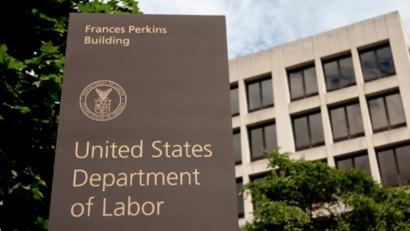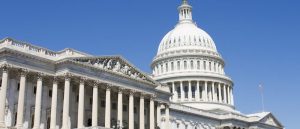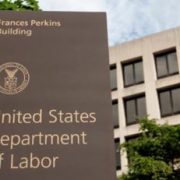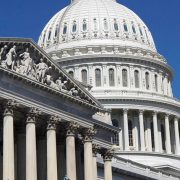DOL Fiduciary Rule Struck Down by Appeals Court

March 16, 2018 by Melanie Waddell
The U.S. Court of Appeals for the 5th Circuit voted 2-1 Thursday to vacate the Labor Department’s fiduciary rule.
The nine plaintiffs in the 5th Circuit case included the U.S. Chamber of Commerce, the Securities Industry and Financial Markets Association and the Financial Services Institute.
The ruling comes one day after Labor won a case in federal court brought against its fiduciary rule by Market Synergy Group, an insurance distributor.
The appeals court struck down the entirety of the fiduciary rule.
Click HERE to read the original story via ThinkAdvisor.
Labor’s next move is to decide whether to ask the full appeals court to rehear the dispute, or take the case to the U.S. Supreme Court.
The U.S. Court of Appeals for the D.C. Circuit still has an active case. That court will not be bound by how the 5th Circuit ruled.
In a joint statement, FSI, SIFMA and Chamber said that “the court has ruled on the side of America’s retirement savers, preserving access to affordable financial advice. Our organizations have long supported the development of a best interest standard of care and the Securities and Exchange Commission should now take the lead on a clear, consistent, and workable standard that does not limit choice for investors.”
According to the 5th Circuit ruling, Labor’s “new definition dispenses with the ‘regular basis’ and ‘primary basis’ criteria used in the regulation for the past 40 years. Consequently, it encompasses virtually all financial and insurance professionals who do business with ERISA plans and IRA holders. Stockbrokers and insurance salespeople, for instance, are exposed to regulations including the prohibited transaction rules. The newcomers are thus barred, without an exemption, from being paid whatever transaction-based commissions and brokerage fees have been standard in their industry segments because those types of compensation are now deemed a conflict of interest.”
Judge Says Rule Has ‘Woke’ Financial Services
Judge Edith Jones, who wrote the decision for the majority, stated that “DOL has made no secret of its intent to transform the trillion-dollar market for IRA investments, annuities and insurance products, and to regulate in a new way the thousands of people and organizations working in that market.”
Large portions of the financial services and insurance industries, Jones wrote, “have been ‘woke’ by the Fiduciary Rule and BIC Exemption. DOL utilized two transformative devices: it reinterpreted the 40-year-old term ‘investment advice fiduciary’ and exploited an exemption provision into a comprehensive regulatory framework.”
The court wrote in the ruling that President Donald Trump has directed Labor “to re-examine the Fiduciary Rule and prepare an updated economic and legal analysis” of its provisions, noting that the effective date of some provisions has been extended to July 1, 2019.
“The case, however, is not moot,” the ruling states. The fiduciary rule, the court said, “has already spawned significant market consequences, including the withdrawal of several major companies, including MetLife, AIG and Merrill Lynch from some segments of the brokerage and retirement investor market. Companies like Edward Jones and State Farm have limited the investment products that can be sold to retirement investors.”
The ruling continued: “Confusion abounds — how, for instance, does a company wishing to comply with the BICE exemption document and prove that its salesman fostered the ‘best interests’ of the individual retirement investor client? The technological costs and difficulty of compliance compound the inherent complexity of the new regulations.”
Labor’s rule also “contradicts the text of the ‘investment advice fiduciary’ provision and contemporary understandings of its language,” the ruling states.
Dissenting Judge Says DOL Acting ‘Within Its Authority’
The judge voting in favor of Labor’s fiduciary rule, Chief Judge Carl Stewart, wrote in his dissent, that: “I conclude that the DOL acted well within the confines set by Congress in implementing the challenged regulatory package, and said package should be maintained so long as the agency’s interpretation is reasonable.”
“DOL has acted within its delegated authority to regulate financial service providers in the retirement investment industry — which it has done since ERISA was enacted — and has utilized its broad exemption authority to create conditional exemptions on new investment-advice fiduciaries,” Stewart wrote. “That the DOL has extended its regulatory reach to cover more investment-advice fiduciaries and to impose additional conditions on conflicted transactions neither requires nor lends to the panel majority’s conclusion that it has acted contrary to Congress’ directive.”
Micah Hauptman, financial services counsel for the Consumer Federation of America, told ThinkAdvisor that the “case was wrongly decided. The industry opponents went forum shopping and finally found a court that was willing to buy in to their bogus arguments. This is a sad day for retirement savers.”
The opinion, Hauptman added, “is extreme by any measure. It strikes at the essence of the DOL’s authority to protect retirement savers under ERISA. It’s not only an attack on the rule, it’s an attack on the agency.”
— Mike Scarcella contributed reporting.
Originally Posted at ThinkAdvisor on March 15, 2018 by Melanie Waddell.




